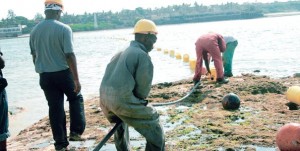Burundi Invests $25 Million in High-Speed Internet
Burundi has officially initiated a $25 million investment project in a bid to improve internet accessibility and decrease costs, reports indicate.
The landlocked African nation, with a population of about 8 million, reportedly has one of the slowest internet speeds in the African region, following decades of internal conflicts which stifled economic development.
During a launch ceremony, President Pierre Nkurunziza asserted that the project was part of a plan to ensure internet access to every citizen by 2025.
According to sources, the project is jointly owned by four private companies and the government.
The Burundian government has relayed that it regards Information Communication Technology as a significant sector that can facilitate employment opportunities and developments in the nation.
Although Burundi’s telecommunications sector is liberalized, internet access is said to be predominantly limited to access points in cyber cafes in Bujumbura, the nation’s capital. Last year, Burundi reportedly received an $11.5 million loan to construct a fiber optic network in the nation.
The 13,000 km project was initiated to cover Bujumbura, 17 provinces as well as the nation’s borders with Tanzania and Rwanda, reports indicate. This project would supposedly also see the landlocked nation link to global fiber optic cables and end reliance on satellite connections.
Observers have remarked that this project would see the country’s bandwidth costs drop considerably. Sources indicate that telecom operators in Burundi currently pay dearly for Mbps on a monthly basis for international bandwidth.
Moreover, internet users in Burundi allegedly incur some of the highest connectivity rates in Africa. The $11.5 million loan would reportedly revolutionize the telecommunications sector by generating the benefits of high speed and bandwidth connectivity at an affordable cost.
According to David Easum, the CEO of Burundi Backbone Systems Company, an immediate impact of this project would be to increase mobile and internet penetration in Burundi while facilitating the access of communication services to a larger segment of the population.
According to a research conducted by World Bank, a 10% increase in broadband penetration could lead to a further 1.4 percentage points of yearly fiscal growth. With the recent investment project, the cable can be further connected to undersea cables linking Africa to the rest of the globe at Mombasa and Dar es Salaam ports in Kenya and Tanzania respectively, sources indicate.
During the launch on January 21st, the project owners indicated that they had laid 1,000 km out of the 1,250 km fiber-optic cable, covering nine out of the nation’s 17 provinces.
According to reports, the firms; Ucom, Africell, Econet Wireless, Cbnite, and the government-owned Onatel anticipate download speeds to increase to 2 GB per second in the subsequent five years from 135 MBps three years ago.
According to Burundi’s telecom regulator, ARCT, the nation had approximately 500,000 internet users as of last May, including those using mobile internet. Other countries currently securing finances for high-speed internet are Kenya and Madagascar.
Altogether, the three countries have secured a loan of $164.5 million from the World Bank to aid them implement high-speed internet networks. During a press briefing, the World Bank remarked that the funds were meant to enhance business competitiveness in the region.
The financier also stated that businesses in the three nations were suppressed due to the absence of high-speed internet networks. Presently, the region reportedly depends on satellites for internet connectivity with some of the highest costs in the world.
Nevertheless, while Burundi makes tremendous progress in internet penetration, the ICT sector still faces challenges, observers say.
Photo by theeastafrican.co.ke
